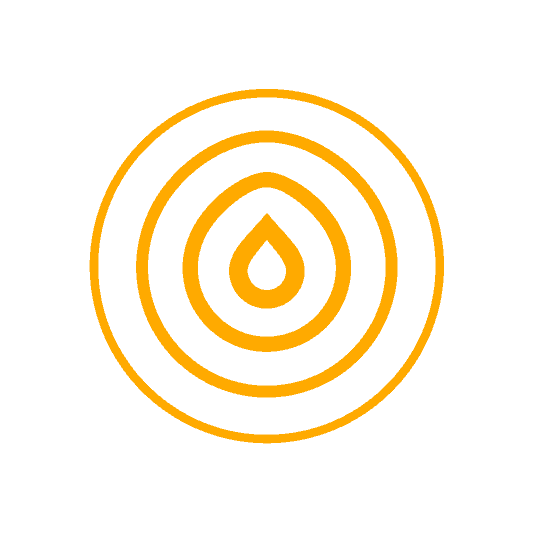The sustainable nature of Safisana’s circular model allows us to generate impact in different areas, benefitting various stakeholders. The Safisana solution enhances sustainability in sanitation, waste management, renewable energy production, and food and agriculture. In this post, we take a look at the direct impacts and number of beneficiaries Safisana currently delivers on a local level in Ghana.
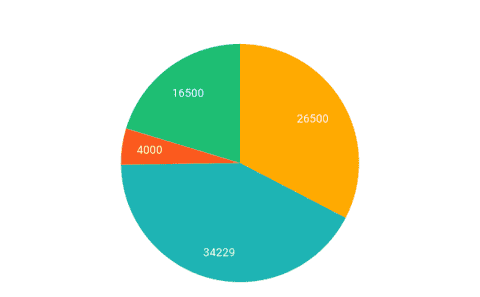
Impacts on health and sanitation
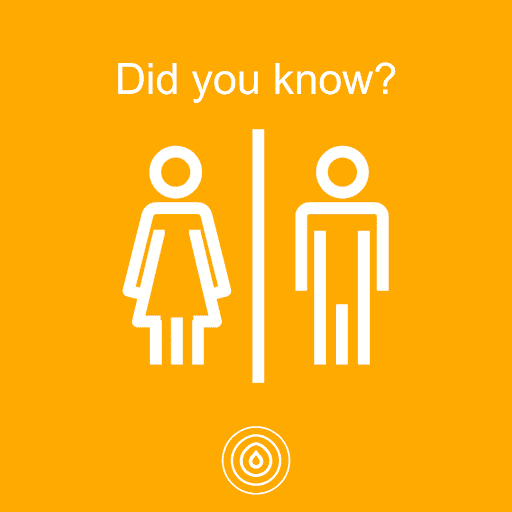
26,500 people
benefit yearly from improved personal and public health, due to our improved sanitation and fecal sludge treatment services
In the field of sanitation, Safisana operates in fecal waste management by collecting fecal sludge from public toilets and households. In partnerships with SMEs, like fecal waste truck drivers, Safisana ensures systematic fecal sludge collection services in Ashaiman and its surroundings.
Open defecation remains a significant issue in Ghana, causing health problems and diseases but also being a factor in environmental pollution. A study from the World Health Organization shows that in 2019, 7653 deaths in Ghana were caused by sanitation-related diseases. Such deaths can be prevented by simply imposing proper fecal waste management structures. Safisana offers a public toilet service on its site for people who don’t own a private toilet at home, as is common in Ghana. About 57% of Ghanaians make use of public toilet services like Safisana’s to release themselves (UN, 2023). Through Safisana’s sanitation and fecal sludge treatment services, 26500 people benefit from improved personal and public health yearly.
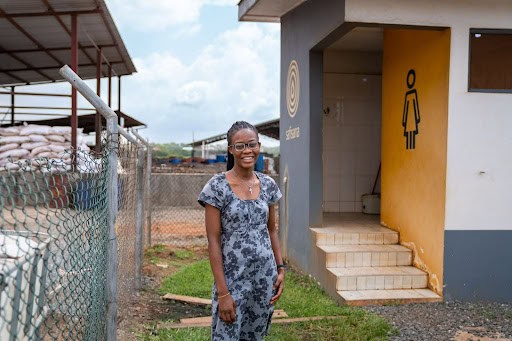
In one of our previous articles, we spoke with Emmanuella Agbekponu, a frequent user of Safisana’s public toilet block. In our conversation, Emmanuella shares her experience with open defecation and talks about her mission to educate children on safe sanitation and toilet hygiene. Read the full article here.
Impacts on health and the environment
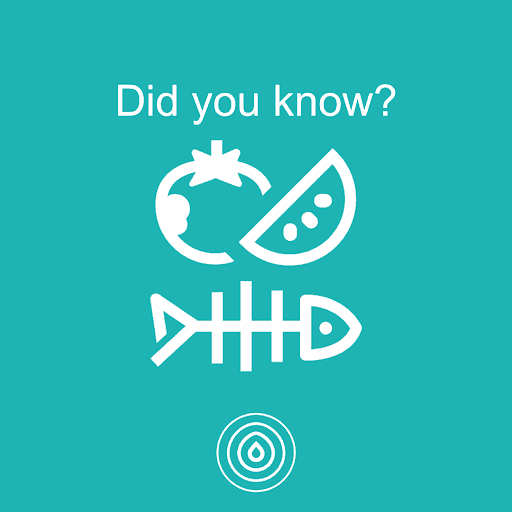
34,000 people
benefit yearly from a cleaner living and working environment, due to the collection and treatment of organic waste by Safisana
Our waste treatment services include organic waste from markets, industries, and abbatoirs. Safisana’s dedicated waste-sourcing team goes to the market daily to collect organic waste from the so-called Market Queens, the female fruit and vegetable vendors we work with. Further, Safisana processes rejected food supplies and industrial waste from organizations like Nestlé, Nutrifoods, Sekaf, and Promasidor.
Waste management is a critical issue in Ghana. Urban areas, just like Ashaiman, deal with large quantities of dumped waste in drains, streams, and open places. Many dispose waste by open dumping, burning, and illegal dumping at dumpsites. Unprocessed food- waste releases methane gasses that negatively affect the environment and climate change. With solutions like the Safisana model, waste that would otherwise produce carbon gasses and pollution, is now processed and turned into valuable products, organic fertilizer, and renewable natural gas. Upcycling waste shows how African countries can solve waste management issues while creating a sustainable impact for the people and the planet.
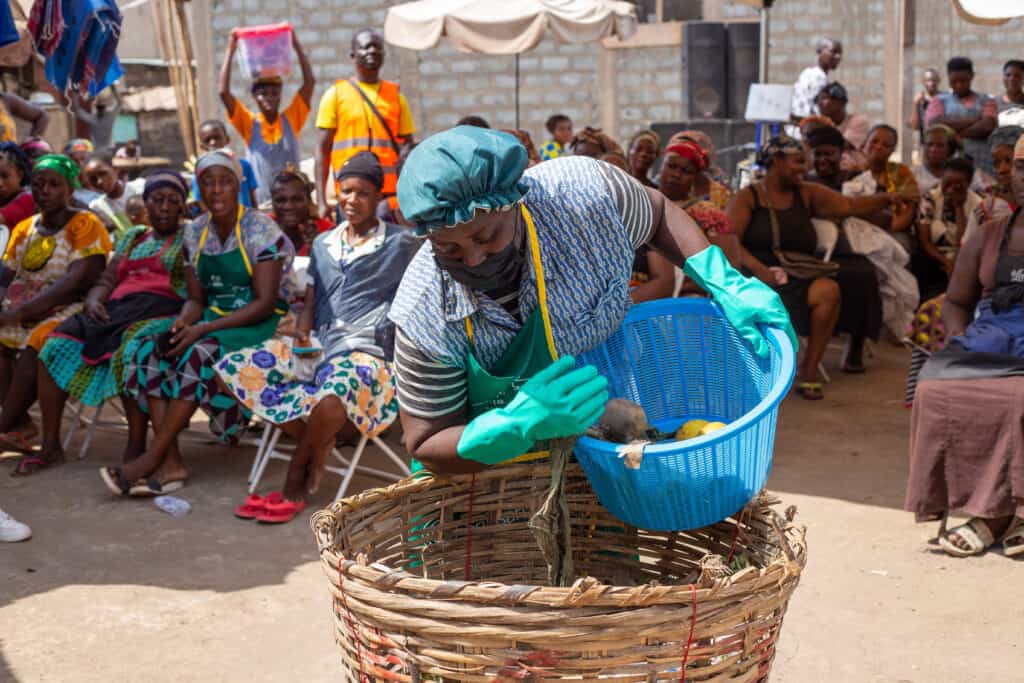
Availability of clean energy
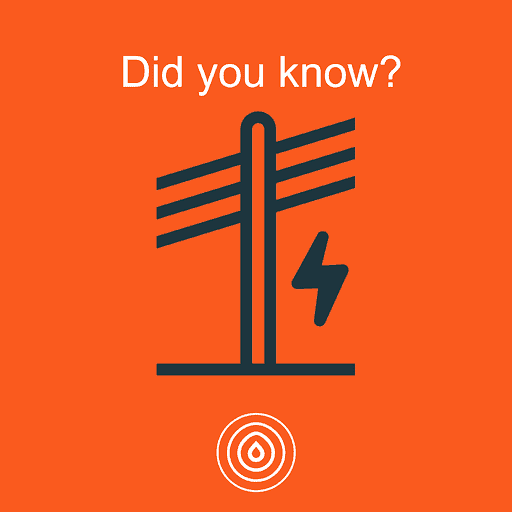
4000 people
yearly gain access to renewable energy
produced by Safisana
At Safisana, we process the collected fecal and organic waste in a biodigester. During a process of anaerobic digestion, we generated renewable natural gas. At our plant, we convert the natural gas from the biodigester into green electricity through a CHP generator. The electricity is directly fed back into the national grid, contributing to the supply of green electricity in Ghana.
The electricity capacity in Ghana is under pressure. Power outages and grid instability is an inconvenient part of daily life for Ghanaians. To eliminate grid capacity problems, it is imperative to explore other ways of sustainable electricity generation. Moreover, traditional ways of gas generation require the burning of fossil fuels. This activity contributes highly to the emission of greenhouse gases into the atmosphere, worsening global warming. Safisana’s renewable natural gas production is 100% carbon neutral and therefore sustainable for the environment. Natural renewable gas produced from organic waste is an example of how local initiatives can create a nationwide impact without harming the environment. The Safisana model can be replicated in any urban area to create value out of waste.
Learn more about how Safisana contributes to ‘clean energy for all’.
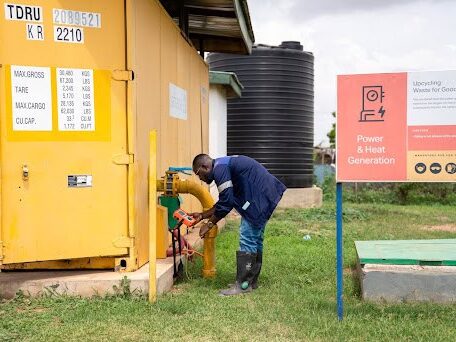
Improved soil quality and yields
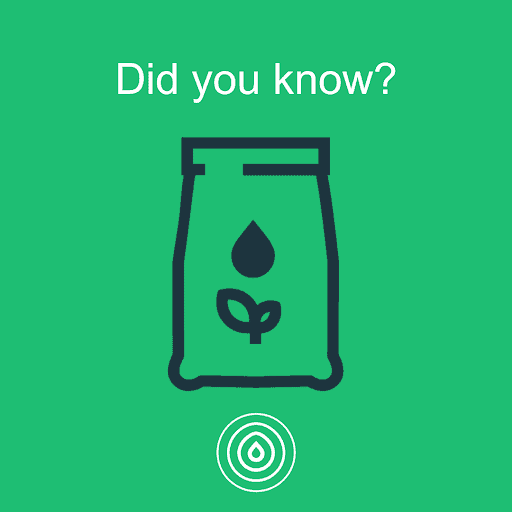
16500 farmers
yearly benefit from the use of organic fertilizer
produced by Safisana
From processing organic and fecal waste, Safisana creates organic compost sold under the brand Asase Gyefo Premium Organic Fertilizer. Asase Gyefo stands for ‘Savior of the Land’ in Ghana’s local language, our organic fertilizer is PPRSD certified. We sell our premium organic fertilizer at different sales locations throughout Ghana. Because of the organic nature of Asase Gyefo, the fertilizer has been proven to generate more than 20% of crop yield. Safisana’s senior agronomist Daniel Larkai, (also our monthly guest writer of the Sustainable Farming blog series) explains that the components of Asase Gyefo are highly nutritious and effective in replenishing depleted soils.
According to Daniel, countries in sub-Sahara Africa, generally lack organic matter. As a result, the soil becomes depleted and needs the support of organic fertilizers to be replenished. Besides supporting farmers with increasing crop yield and income, Safisana’s organic fertilizer also contributes to a bigger mission: promoting sustainable farming.
In general, chemical fertilizers remain a more popular choice in Ghana. Farmers often work with chemical fertilizers because that is what the government provides. However, chemical fertilizers harm the environment as their production, import, and use leads to enormous greenhouse gas emissions. Even though short-term chemical fertilizers might show an increase in yield in the long-term they eventually cause soil depletion and reduced crop yield.
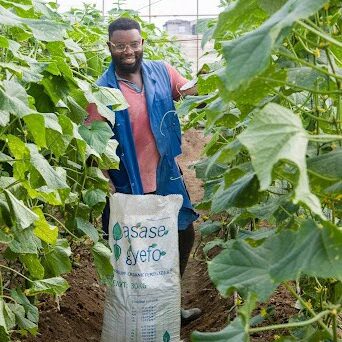
Related Articles and references
- How the Safisana Solution contributes to 10 out of the 17 SDGs
- ‘Stronger Together’: Community Engagement with Plan International Ghana
- “Safisana’s impact potential is very significant, far-reaching, and differentiated”
- Nations in Ghana. (n.d.). UN Ghana Water, Sanitation and Hygiene Support Programme. Retrieved July 28, 2024, from source link
